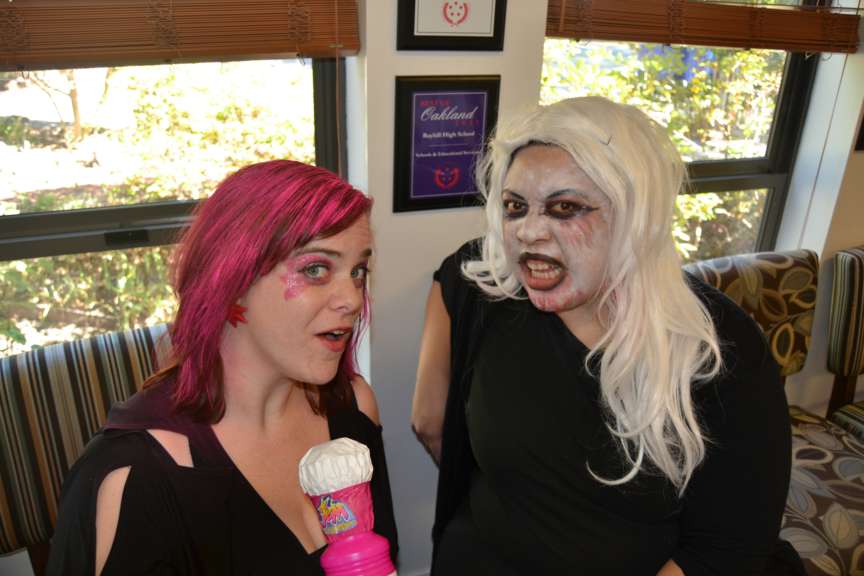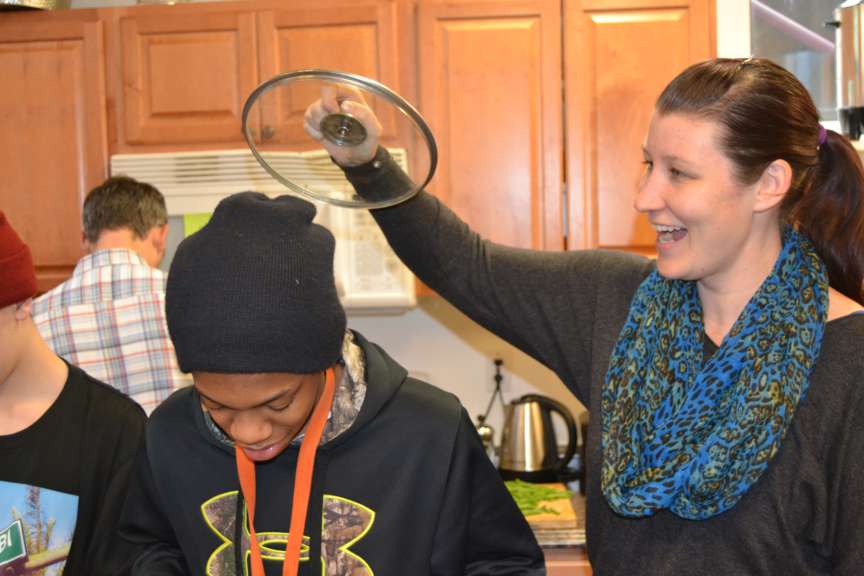There is much debate in our country about whether teachers are overpaid or underpaid. How much do they really spend working outside of the school day? I did a bit of research and found that those claiming teachers are overpaid were unable to cite credible sources. To calculate hours worked, they cited contracted hours and not the many outside hours teachers invest in their students (NEA). Teachers spend many hours lesson planning, attending school functions, grading papers, and furthering their education.
So how do Bayhill teachers spend their “time off”?
Mrs. Anderson – History & Spanish.
I am the type of teacher who loves to be sitting on my couch while updating Jupiter Grades. That being said, I spend loads of time at home on my computer outside of the classroom- probably 2 hrs a day. The home environment makes me motivated and keeps me connected to my work, but allows for a less structured place to get things done. I also love getting feedback from people at home, and I am more likely to come up with interesting lesson plan ideas.

Ms. Ryan – Reading & Educational Therapy
I love what I do. I spend 5-10 hours/week outside the school day. I am planning for my reading class and for my individual sessions with students, and grading. Planning includes looking for articles and books that I think my students will enjoy, reviewing goals, and planning creative, multisensory ways to present material.
Mrs. Whitwill – English & Economics
I spend between 7 to 10 hours/week outside the school day replying to emails, updating IEPs, grading student work, designing the yearbook, lesson planning, and pre-reading the texts I teach. Additionally, I chaperone JSA conferences 2-3 full weekends per year. During the summer, I’m not sure I can quantify the time spent thinking about the upcoming year, but I think about it a great deal. I’m pretty sure I think about the upcoming year daily, which books I’ll still teach and ways to help kids connect more to the texts. More tangibly, I typically spend at least a day per week reading educational books or articles, reading possible literature selections for English class, and rethinking the approach to material and standards.

Mr. Gourley – History & English
I would say I spend about an hour to 2 hours a day, either creating lessons or modifying ones I come across. Not to mention the time I spend reading both history and literature. Over summer, at least last summer, I would say I spend a good amount of time thinking about the year as a whole and the main objectives I am looking to address. I also keep up with current trends in history education by reading the latest research from “The History Teacher” (a journal I get) and other sources that help keep me up to date on historical research and trends in education.

Ms. Storey – Algebra, Geometry & Physics
I typically come into work once a weekend every other weekend and grade for about 4-5 hours. Some days I am here late grading papers. I’m the facultry representative at Board Meetings once a month so on those days I’m here until about 8:00PM. I also spend time shopping for DIY club and chaperon almost every single Bayhill event, including camping trips. Before I started at Bayhill, I use to have classes 2-3 times a week for my Masters program.

Mr. Dawson – Art & Facilities
It varies a lot day to day and week to week, but I think I spend an average of 90 minutes every day outside of school hours, working on school-related things. This includes writing tests and quizzes, creating drawing lab assignments (planning tasks and putting together images and slideshows), and developing new projects. I also have to run a lot of errands for art supplies and materials. Since I’m also the Facilities Manager, I spend some of that time getting materials and doing research into things that need to be done for the building
During the summer, I develop new projects, work on facilities and also, as necessary, update and revise syllabi. Again, it varies year to year, but outside of facilities I probably invest about a week of each summer on school-related work.
As is often said, you don’t go into teaching for the money or glory. Teachers are not the only professionals who work long hours. However, teachers are the lowest paid professionals that are required to have a graduate level of education. Teaching is about dedication to the students. It is a calling and for those of us who are called, it’s not about the money. It’s about our students. I, for one, am impressed with the dedication that Bayhill teachers demonstrate. Thank a teacher today!

I’m so impressed with the dedication and professionalism
of my daughter and her colleagues. And it is a shame our society doesn’t more fully value them.